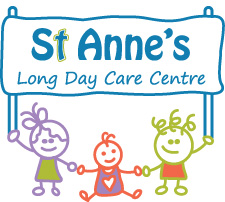Our Philosophy
is underpinned by our belief that families are children’s first and most influential teachers.
As well, our Philosophy reflects the guiding principles of the National Quality Framework:
- The rights and best interests of the child are paramount;
- Children are successful, competent and capable learners;
- Equity, inclusion and diversity;
- Australia’s Aboriginal and Torres Strait Islander cultures are valued;
- The role of parents and families is respected and supported;
Best practice is expected in the provision of education and care services.
We acknowledge that St Anne’s Long Day Care Centre is on Nyangbul country in the Bundjalung Nation.
We pay our respects to the Nyangbul and Bundjalung People past and present.
We endeavour to teach our First People’s history and culture through our Education and Care of the children at St Anne’s as part of our Reconciliation journey.
Relationships
Everything we do at St Anne’s is based on the building of positive, warm and respectful relationships with all who come to St Anne’s.
We strive to provide a calm, responsive, friendly, safe place where everyone feels welcomed, valued and respected.
Reciprocal relationships ensure a sense of belonging.
Children are respected as capable and competent learners.
Partnerships
Embedded in our daily practice is our commitment to ensure families and the community feel welcomed, included and respected. Research informs us that children are more likely to reach their full potential in life when their family and education and care service work together.
Families and Educators sharing information and collaborating in relation to children’s learning and development is the foundation of our profession.
It is paramount in this partnership that we provide a safe place for the children in our care.
Cultural Respect
At St Anne’s cultural diversity is respected, embraced and supported.
We believe culture is not confined to ethnicity or nation of origin.
Culture is a person’s identity.
Families’ and Educators’ multiple cultural ways of knowing, seeing and living are acknowledged and respected.
Sustainability and Our environment
Valuing the land on which we learn and play is an integral part of St Anne’s.
Awareness of the environment and how to take care of it, is supported and extended through daily practices, interactions and resources.
Pedagogy
Play based learning, intentional teaching, and including children’s voices are fundamental elements in our work with children.
Our pedagogical practices are also influenced by the pedagogical approaches of Emmi Pikler, Magda Gerber, Maria Aarts’ Marte Meo Principles, and the Circle of Security.
Diversity, inclusion and equity
At St Anne’s we acknowledge diversity and provide opportunities for all children and families to participate and benefit.
In our service community we promote an environment that supports the inclusion of every child so that each child can be encouraged to value and respect diversity.
At St Anne’s, Educators support children to recognise the connectedness between mind, body and spirit.
Caring for each other and for our earth, and all on it, is fundamental to the Catholic faith.
Professional Practice
Key documents are used to guide our curriculum, pedagogy, professional decision-making and ethical practice at all times:
- The Early Years Learning Framework
- The ECA Code of Ethics
- The National Quality Standard
- The Child Safe Standards
- The Education and Care Services National Regulations
- The NSW Department of Education Self Assessment-Working Document
Reflective practice underpins our aim for continuous improvement. Educators engage in Professional Development to ensure professional knowledge aligns with current research.
